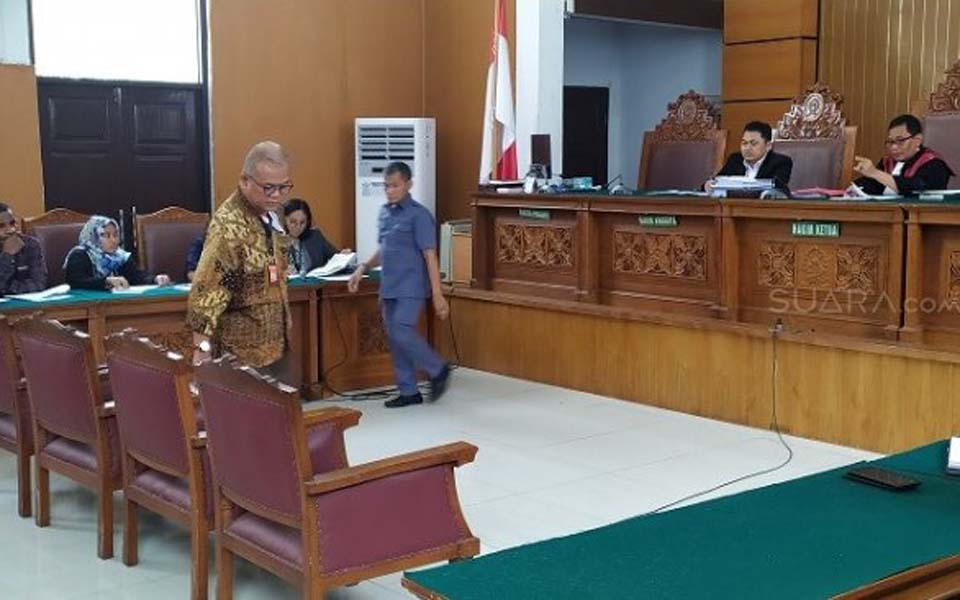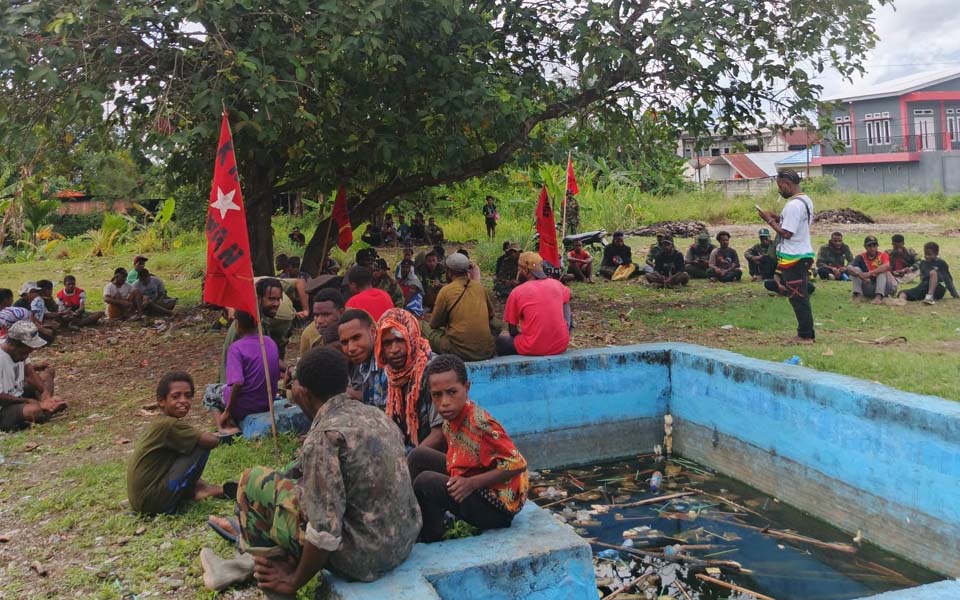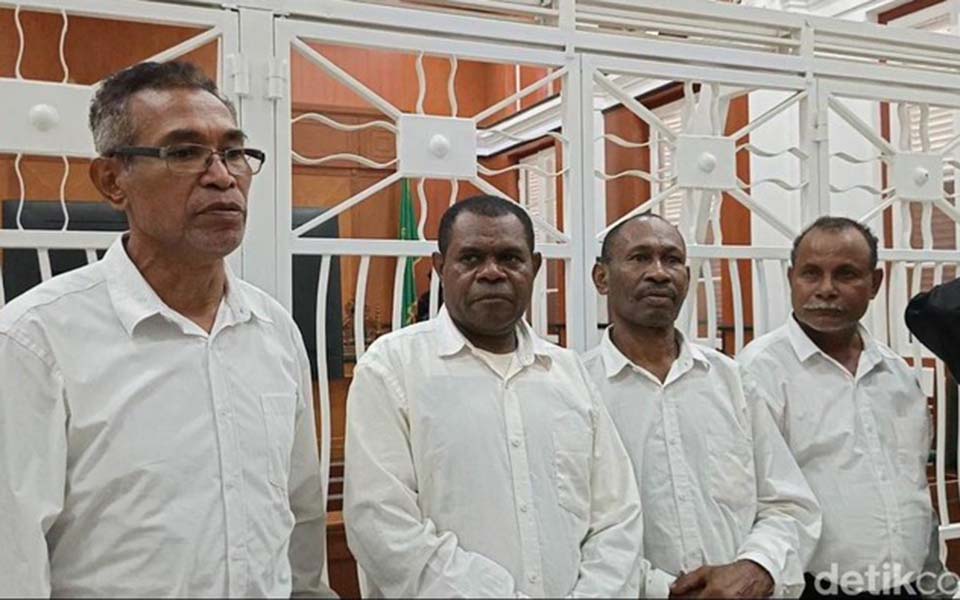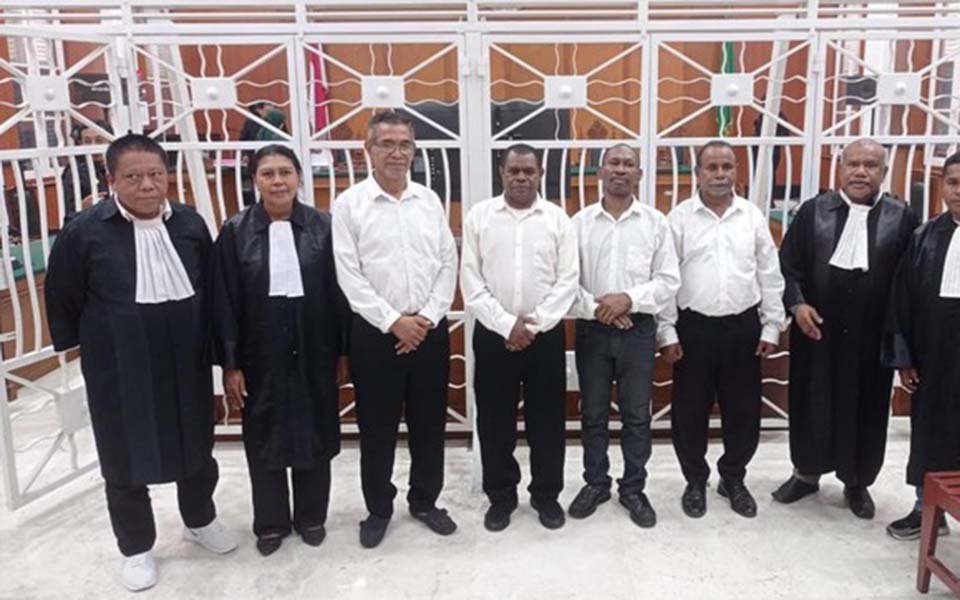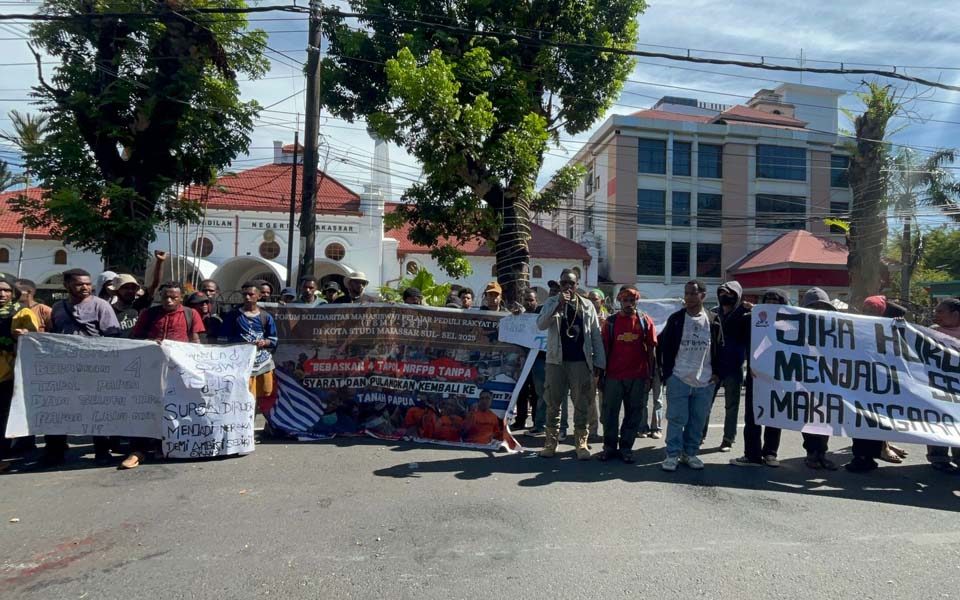Adi Briantika – A pretrial hearing in a case of alleged treason by six Papuan political prisoners heard testimony from the plaintiffs on Wednesday December 4. The lawyers for the plaintiffs took the opportunity to present an expert witness.
Trisakti University Criminal Law lecturer Abdul Fickar Hadjar, who appeared as the expert witness, responded in general terms to questions from the plaintiffs’ lawyer, the defendant (the Metro Jaya regional police criminal detective directorate) and the presiding judge at the South Jakarta District Court, Agus Widodo.
A number of issues were highlighted such as alleged irregularities during the arrests, the raid and searches and the indictment of the suspects. The plaintiffs argued that these were illegal. The lawyer representing the six suspects, Oky Wiratama Siagian, asked whether the arrests were carried out in accordance with the Criminal Procedural Code (KUHAP).
Hadjar testified that arrests are part of coercive measures – an authority afforded to investigators, prosecutors and courts. He said that the arrests fall under the jurisdiction of procedural law, meaning that there are procedures which must be followed.
“When the investigators or police investigators made the arrests, were they furnished with warrants? Were the subjects of the arrests based on sufficient evidence? That’s a legality issue”, said Hadjar during his testimony at the court.
According to Hadjar, it is required by law, in this case the police, that they must have an arrest warrant.
If they do not have an arrest warrant, there are exceptions in the case of the arrest of people caught in the act. “But if they’re not caught in the act, in the case of an arrest because of a report, then criminal investigators must be furnished with a warrant”, said Hadjar.
Siagian emphasised the issue of the arrest process because they allege that it was illegal. They alleged that the six suspects were presented with arrest warrants the day after they were arrested.
The suspects charged with alleged makar (treason, subversion, rebellion) are Paulus Suryanta Ginting (39), Anes Tabuni alias Dano Anes Tabuni (31), Charles Kossay (26), Ambrosius Mulait (25), Isay Wenda (25) and Arina Elopere alias Wenebita Gwijangge (20).
Indonesian People’s Front for West Papua (FRI-WP) spokesperson Ginting who was arrested on August 30 was provided with an arrest warrant on August 31. The warrant, which was designated Number: SP.Kap/1720/VIII/2019/ditreskrimum, was dated August 30, 2019.
Kossay and Tabuni also received arrest warrants on Augusts 31, but were likewise arrested on August 30. Kossay’s warrant which was designated Number: SP.Kap/1721/VIII/2019/ditreskrimum, was dated August 30. Tabuni’s warrant, which was designated Number: SP.Kap/1722/VIII/2019/ditreskrimum, was also dated August 30.
Mulait and Wenda received arrest warrants on September 1 but were arrested on August 31. Mulait’s warrant designated Number: SP.Kap/1719/VIII/2019/ditreskrimum was dated August 30 and Wenda’s warrant designated Number: SP.Kap/1739/VIII/2019/ditreskrimum was also dated August 30.
Elopere and Gwijangge were never provided with arrest warrants.
In addition to this, according to Siagian, arrest warrants must be based on sufficient preliminary evidence as regulated under Article 17 of the KUHAP. Then, a person can only be declared a suspect (charged) after they have been legally and appropriately summoned as a witness twice in succession, in accordance with Article 19 Paragraph (2) of the KUHAP.
Meanwhile the lawyer for the defendant, Assistant Superintendent Nova Irone Surentu, asked about the authority of criminal investigators in arresting suspects. Hadjar explained that there are two different situations, namely arrests made with an arrest warrant or arrests when a crime is in process. “These two situations provide authority to criminal investigators to make an arrest, but still the essence is the legal basis”, replied Hadjar.
The suspects are alleged to have committed makar because they flew the Morning Star independence flag in front of the State Palace on August 28 during a rally opposing racism against indigenous Papuans. (tirto.id – Hukum)
[Translated by James Balowski. The original title of the article was “Sidang Tapol Papua, Ahli Jelaskan Soal Legalitas Penangkapan – Tirto.ID”.]
Source: https://tirto.id/sidang-tapol-papua-ahli-jelaskan-soal-legalitas-penangkapan-emSd





